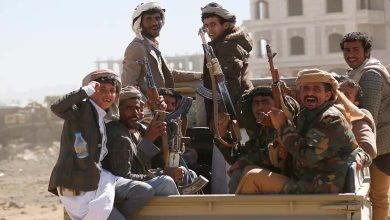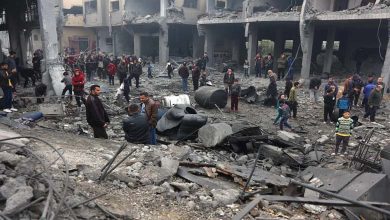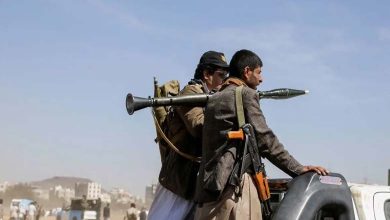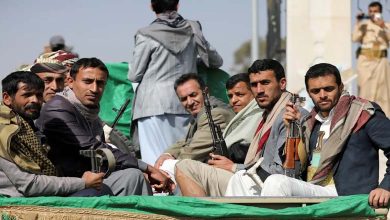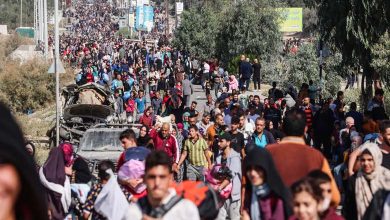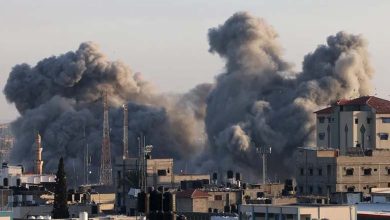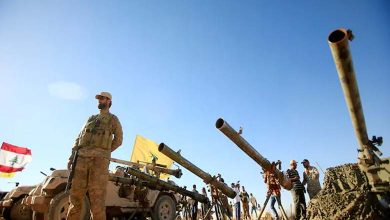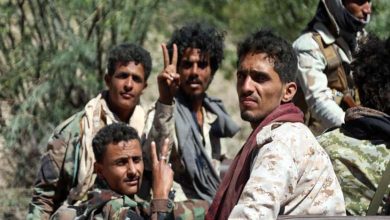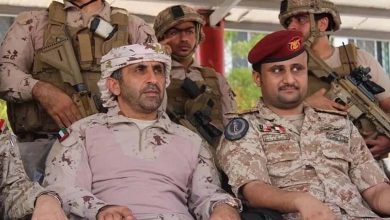Renewed fears of entrenching “uncontrolled arms”… Islamic forces provoke Lebanese anger
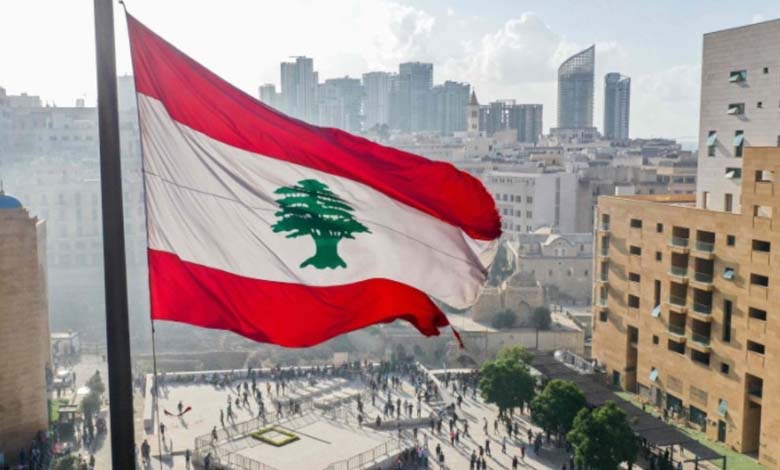
After appearing armed and firing shots during the funeral procession of two of its leaders targeted by Israel, Lebanese political and popular currents launched a fierce attack on the behavior of the “Dawn Forces,” affiliated with the Islamic group, considering it to entrench the phenomenon of uncontrolled arms at the expense of the rule of law, akin to Hezbollah.
At least four people, including a child, were injured by stray bullets in the Akkar region, northern Lebanon, during the “armed parade” held by the group Sunday in the town of B’bennine, accompanied by intense gunfire. Dozens of masked and armed men marched through the streets of the town, brandishing their weapons and firing into the air, causing damage to cars and property in the area.
Videos and photos of the armed men in B’bennine sparked widespread anger among civilians and politicians, reigniting the debate about the proliferation of weapons in the country amidst the deterioration of the Lebanese state. Activists emphasized that there was no difference between the Islamic group and Hezbollah in ignoring the state and submitting to Iran.
The Islamic group is considered the Lebanese branch of the Muslim Brotherhood, founded in 1964 by Sheikhhs Fathi Yakan and Faysal Mawlawi, before forming a military wing in 1982 during the Israeli invasion of Lebanon under the name “Dawn Forces.”
There is no official figure on the number of fighters in the group’s military wing, but the Carnegie Middle East Center estimates it at 500 fighters or more.
The Islamic group is present in Sunni-majority cities and towns in northern and southern Lebanon, and it is close to the Palestinian Hamas movement. It has participated in joint attacks against Israel from southern Lebanon.
According to observers, Hamas’s deputy head of the political bureau, Saleh al-Arouri, who was assassinated by Israel in the southern suburb of Beirut earlier this year, contributed to enhancing the capabilities of the “Dawn Forces” by launching the concept of battlefield unity to unify what is called “resistance axis groups against Israel.”
The relationship between the group and Hezbollah militias has been marked by tensions and attractions and deteriorated between the two parties after the outbreak of the civil war in Syria, when many Sunni forces, including the Muslim Brotherhood, took an opposing position to the Syrian government and Hezbollah, which supported it during the events.
In 2022, a new leadership took over the Islamic group, led by Secretary-General Mohammed Taqoush, considered close to Hamas, and this leadership has warmed relations with Hezbollah.


